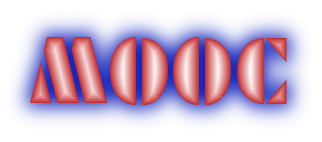American MOOC
 A member of my Academia and the MOOC group on LinkedIn contacted me last month by email to further the discussion of MOOCs and "reforming higher education." He has been reading my posts for a few years and generally agrees with my thoughts, but he's coming from a very different background, which is what I found most interesting.
A member of my Academia and the MOOC group on LinkedIn contacted me last month by email to further the discussion of MOOCs and "reforming higher education." He has been reading my posts for a few years and generally agrees with my thoughts, but he's coming from a very different background, which is what I found most interesting.
Muvaffak Gozaydin wrote that he is Turkish, but lived for a time in the U.S. While here, he did research at Caltech in the early 1960s and received an MSME in 1964 from Stanford, an MSIE in 1965 from Stanford and a MSEE in 1968 from Stanford. He did the latter while working for HP in Palo Alto, CA. That education got him a good life as a manager and CEO in Turkey.
He feels indebted to the U.S. and follows higher education here and abroad. What he observes is not any good will from the providers of online education to the larger educational world.
He was excited back in 2011 when Stanford made an online course into a MOOC and 160.000 signed up. 12.000 or so finished, which some see as disappointing, but I see as amazing. Has your school offered an online course and had 12,000 learners finish it?
His concern now is providing courses and degrees that fit the needs of 18 -22 years olds. He said that "The problem is there. Quality is low, price is high in the USA for Higher Ed."
Georgia Tech offered a $7000 masters degree. MIT offered a supply chain management masters degree that was 50 % online with a 50 % reduction in tuition. But it has been 4 years since MOOCs peaked in media attention and further development has been very slow.
I had posted several articles on LinkedIn about corporate and MOOC use outside use the United States, including an effort by the French government. But how, he asks, can we convince America's top 200 schools to provide online degrees at lower cost?
Here is one idea he suggests. Students take as many courses as they want online and each online course causes a reduction in tuition of about 10 %. If they take 5 courses, online cost would be reduced 50 %.
That is quite a new idea, and not one most schools would easily sign on to try.
I have long believed with MOOCs it is more of evolution rather than revolution.
As I replied to Muvaffak, while universities here in the U.S. are non-profit, they are very concerned with money/profit. The MOOC was seen early on as a threat to the tuition and degree model that provides a good percentage of operating costs.
People thought Stanford, MIT, Harvard et al were first involved in MOOC experiments because they more innovative or more open. The top universities were quicker to jump into MOOCs because they have large endowment monies and tuition is less of a factor.?
It's encouraging that some schools like Georgia Tech are offering a few degrees fully online at lower cost. The rise of the mini-masters may help with this too.
It is ironic that many schools - including my own NJIT - were once charging more for online courses at one time (tech fees, development costs). That has largely ended, but schools don't see that the numbers (massive or less) in a MOOC (or MOC) offer the opportunity to maintain "profits" even with much lower costs.
Many educators think the MOOC revolution failed and they no longer have to worry about it.
Still, I try to promote and educate others about the MOOC approach - though at this point, I wish we had another name for them. Too much baggage.
